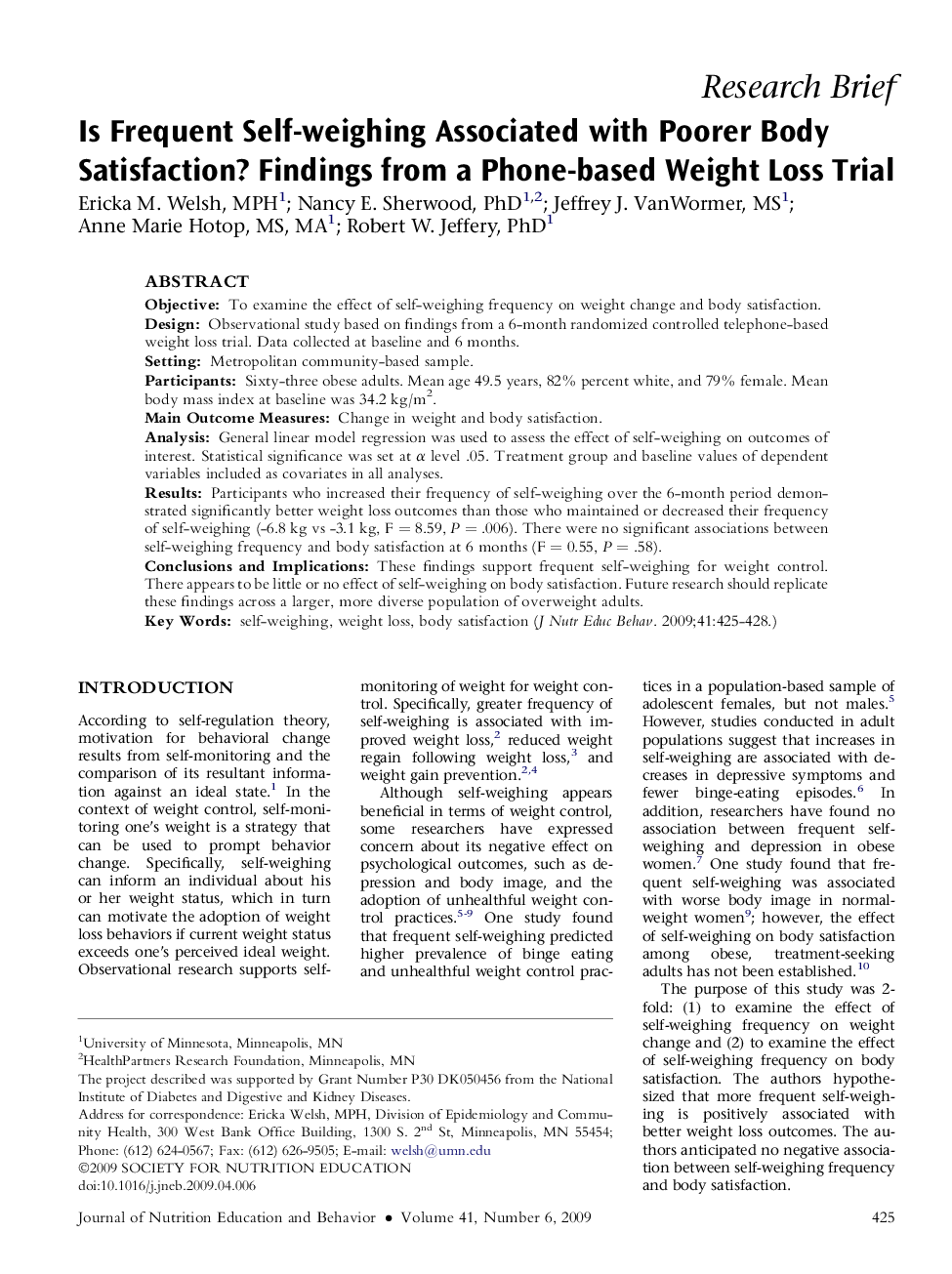| Article ID | Journal | Published Year | Pages | File Type |
|---|---|---|---|---|
| 363094 | Journal of Nutrition Education and Behavior | 2009 | 4 Pages |
ObjectiveTo examine the effect of self-weighing frequency on weight change and body satisfaction.DesignObservational study based on findings from a 6-month randomized controlled telephone-based weight loss trial. Data collected at baseline and 6 months.SettingMetropolitan community-based sample.ParticipantsSixty-three obese adults. Mean age 49.5 years, 82% percent white, and 79% female. Mean body mass index at baseline was 34.2 kg/m2.Main Outcome MeasuresChange in weight and body satisfaction.AnalysisGeneral linear model regression was used to assess the effect of self-weighing on outcomes of interest. Statistical significance was set at α level .05. Treatment group and baseline values of dependent variables included as covariates in all analyses.ResultsParticipants who increased their frequency of self-weighing over the 6-month period demonstrated significantly better weight loss outcomes than those who maintained or decreased their frequency of self-weighing (-6.8 kg vs -3.1 kg, F = 8.59, P = .006). There were no significant associations between self-weighing frequency and body satisfaction at 6 months (F = 0.55, P = .58).Conclusions and ImplicationsThese findings support frequent self-weighing for weight control. There appears to be little or no effect of self-weighing on body satisfaction. Future research should replicate these findings across a larger, more diverse population of overweight adults.
